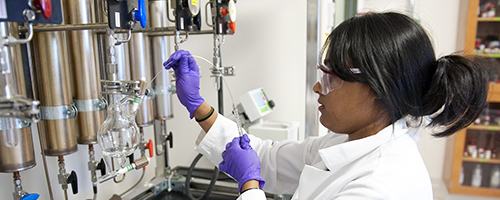Document Type
Article
Publication Date
2023
Publication Title
Feminist Pedagogy
Abstract
At the center of feminist pedagogy is community. Creating community within the classroom and between the class and local communities increases student engagement and access to knowledge. Communities can be a source of solidarity and further decenter authority in the classroom, empowering students, teachers, and the surrounding community to be co-learners. Amid the COVID-19 pandemic, remote teaching posed challenges to student engagement. Here, I describe an assignment used to build an inclusive community of co-learners within a virtual biochemistry class and our local communities. Oxidative phosphorylation is a cellular process used to create energy that depends on the electron transport chain, a series of electron-transfer reactions that can be challenging for students to learn. To help remote students understand the electron transport chain, I designed an assignment for students to 1) learn about electron transport and its connection to oxidative phosphorylation through reenactment and 2) teach classmates and nonscientists within their local communities about this essential process. Through reenactment, students created meaningful connections with this cellular process while educating other nonscientists, extending the virtual classroom into our local communities. Notably, this assignment can be used in in-person teaching and applied to other metabolic pathways to facilitate an intuitive understanding of the biochemical process.
Volume
4
Issue
2, Article 3
Version
Version of Record
Recommended Citation
Giddings, Lesley-Ann (2023) "Creating Meaningful Connections with the Electron Transport Chain Beyond a Virtual Classroom," Feminist Pedagogy: Vol. 4: Iss. 2, Article 3. Available at: https://digitalcommons.calpoly.edu/feministpedagogy/vol4/iss2/3


